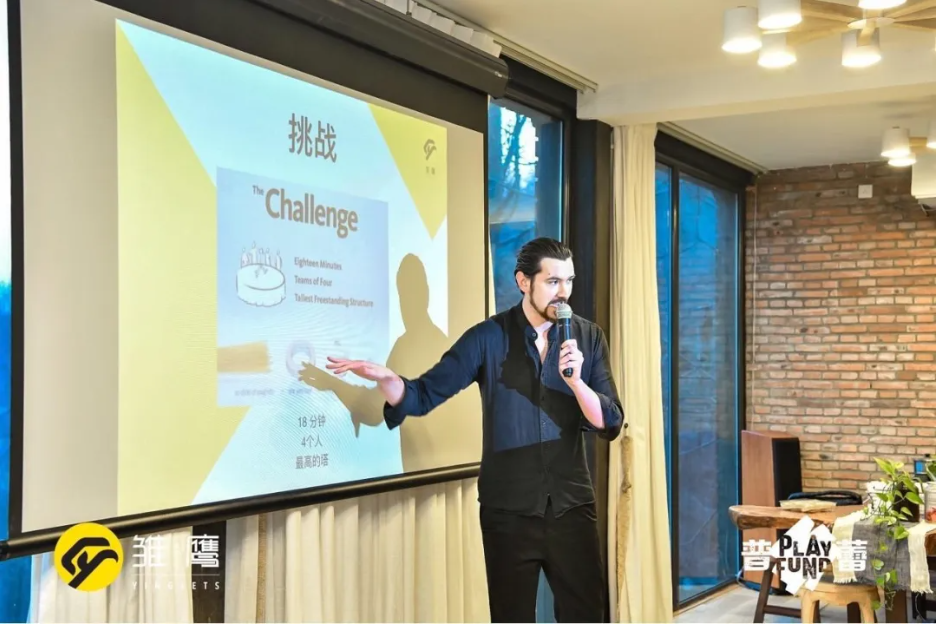Author: Kelsey Cheng
Translation: Amanda Lim
The coronavirus outbreak has been shaking up China’s investing industry, forcing start-ups to cut wages, lay off workers and put deals on hold to make it through the cash crunch. Now that the virus has spread beyond China’s borders and infected hundreds of thousands in more than 155 countries, the world faces an existential crisis.
On Monday (March 16), worries about the coronavirus pandemic sent the Dow sinking nearly 3,000 points, or 12.9 per cent – its worst day since 1987, while the S&P plummeted 12 per cent. Data released by the National Bureau of Statistics indicated roughly five million people in China lost their jobs amid the outbreak in January and February.
Fundraising by Chinese start-ups slumped nearly 60 per cent to US$1.79 billion and a six-year low of 168 deals so far this year, from US$4.18 billion in 440 transactions in the same period in 2019, according to data by Preqin quoted by South China Morning Post. The volatile sector was already suffering from a “capital winter”, as start-up founders face a funding shortage amid a slowing economy and the end of a venture capital boom.

Not all hope is lost: Gearing up for a stronger comeback
Thankfully, experts and start-ups founders who have walked the walk tell Ladies Who Tech that it’s not the end of the world.
Shanghai-based entrepreneurial coach Fionn Wright believes that it’s very much possible for start-ups in China to come back stronger following this “black swan” event – but they’ve got to be smart about it.
“In China, a strong comeback is likely as the business ecosystems recover over the next few months. This is a time when start-ups need to be creative to be able to retain employees, find new ways of making money and potentially even develop entirely new products or services. Business as usual is not going to cut it. What got you here, won’t get you through the crisis,” Wright told Ladies Who Tech.

Taking current trends outside of China into consideration, Wright believes businesses that are reliant on import/export are in for uncertain times and may want to find ways to leverage China’s relative internal stability to develop new supply chains or target customers at least temporarily.
He urged start-ups to stop trying to figure out when things will get back to the way they were and accept that this is the new norm.
“Start taking action to adapt to it. The winners of tomorrow are those who can see their long-term vision clearly at this moment and can use the new situation as a way to accelerate towards their long-term vision,” he said.
Case studies: How FashionEx and RealWear thrived
Amelie Mongrain is the co-founder of FashionEx, a Shanghai-based start-up which offers accelerator programs, relevant toolkits and industry expert support to fashion entrepreneurs and their businesses.
Needless to say, her company was dealt a blow by the coronavirus – supply chains came to a halt and her team was unable to fulfill her normal sales and delivery.
But being in the fashion and textile industry for more than 20 years, Mongrain was able to think outside of the box. And sure enough, new opportunities came knocking.

“We shifted our focus. We took time to revisit our annual goals and worked on a new strategy. The situation we were in triggered our creativity and prompted us to build our brand and promote ourselves differently, and the goal was not money. It gave us a chance to re-imagine and reboot our business. At the same time, we wanted to help with battling the outbreak and we looked for what was needed at the time,” she told Ladies Who Tech.
Changing her mindset and the direction of her export business lead to the creation of KandyMask, a stylish medical-grade anti-pollution mask that protects a person from smog, haze, allergens and airborne contaminants. The plan was originally to distribute the product in foreign markets, but Mongrain decided to sell them in China directly, which benefitted thousands of people who were struggling to get their hands-on protective wear at the time.
At the same time, her menswear supplier underwent a repositioning of its business model and received a certificate to produce protective suits for hospital and clinic staff. Mongrain immediately jumped on board and helped facilitate the process, rushing supply to regions that needed help.

“Most importantly, I started to give a lot more TLC (tender loving care) to our clients,” Mongrain reflected. “I did live chats with them and went through virtual product development sessions with them. We bonded and showed that we cared, and talked about how we can be part of their business development at a deeper level.”
“Through this crisis, new roads opened up and stronger relationships were forged,” she said. “In times like these, I believe we all have the potential to rise to the occasion and achieve something that we never thought was possible. But if you give up now, you will fail for sure.”
The biggest takeaway from this experience, Mongrain said, is realizing the power of community and empowerment to one another, and witnessing how the experience was built into the team’s culture.

Similarly, Vancouver-based augmented-reality headset maker RealWear also experienced a lucky break in China amid the virus outbreak, which created an unexpected demand for the devices in the health care sector.
Through a partnership with Tencent, RealWear was able to immediately supply the headsets to frontline medical professionals, according to The Columbian. Thanks to the voice-driven software being compatible with protective gears, doctors have been able to conduct hands-free communication and transmit live feeds while out in the field. In the long run, it has opened up a potential new customer vertical for the start-up.
“This is a compelling example of how tech companies can work together to fight coronavirus,” CEO of RealWear China Bo Li said in a LinkedIn post. “Startup companies like ours can also play a high-impact role in this crisis by empowering people with purpose-built technology.”
Tips to help start-ups emerge successful
So, what can start-ups do to get through this difficult time and find new opportunities? We’ve rounded up all the recommendations from Wright and Mongrain in the list below. Additionally, Mongrain particularly recommended start-up founders to follow “The Five Cs for Leading in a Crisis/Downturn” by Verne Harnish, author of Scaling Up and founder of Entrepreneurs’ Organization.

- Get a coach: To help shift your mindset, optimize your performance, expand your perspectives and keep you accountable, all elite performers know you can’t be at your best without a coach.
- Re-organize your goals: List three goals in the beginning of the week and do an evaluation at the end to see what you’ve achieved and what were the setbacks.
- Acknowledge the small wins and be agile. Chase away the “If I had” or “If I was” syndrome.
- Control the controllables, focus on what you want and prioritize contextually: The No. 1 factor in times of crisis is mindset. “If your focus is on surviving, you will either survive or die. But if you see this as an opportunity to test yourself, to see how well you can do, to make the best out of the situation, then you will either make the best out of the situation or almost the best. What you focus on is what you get. Prioritize smart,” Wright said.
- Find case studies, read an autobiography and/or listen to podcasts: Look for examples of companies that have gotten through crises and how they have thrived through them, e.g. 2008 financial crisis.
- Join an online mastermind group: Look for social media groups that are facing similar struggles and have similar goals, and pick their brains for new ideas.
- Reach out to a mentor: Message a senior in your industry or community that has relevant experiences and ask them for guidance and support.
- Enroll in an online course: There are thousands of courses available for all kinds of subjects, it’s best to make use of this time to upskill.
“The Five Cs for Leading in a Crisis/Downturn” by Verne Harnish
- Communicate daily: Send out a daily communication – an email, 2-minute video, voice message – to all of your employees and let them know what is happening. Don’t sugarcoat, but balance one negative with several positives over the next several days and weeks. And if you have a negative to share, mention it first in the communication – then note what is being done to address it.
- Customer/Community support: Gather your employees to brainstorm “how might we support our customers and community”, then act. The key is giving, giving and giving with no expectation of return. Your customers will remember this.
- Clean up and catch up: Use the downtime to spring clean all aspects of the business. Seek out needless activities and costs. Focus on how to make things easier – for customers and employees.
- Cash, cash, cash: Review all monthly recurring expenses and eliminate redundancies. Remember to involve your entire employee base in finding ways to save money.
- Be calm and considerate: Panic is contagious, but so is leadership. Breathe! You set the tone for the entire organization.

Now’s not the time to give up
“Let go of your assumptions, squeeze your resources and find a way,” Wright encouraged. “For a moment let go of your usual business model. What do you have, or can get, that people need right now? How can you adapt it to their current needs? How can you get it to them? How can you get them to give you something you want for it? (Hint: that might not be money in the short term).”
“Embrace the challenge. You’re a start-up and experiencing bumps is part of the journey – it’s just that this is a natural global crisis,” Mongrain tells her fellow start-up founders. “You are NOT alone. This is going to prepare you for future challenges that will be coming your way in a different format. You started your business because you wanted to solve a problem – are you going to give up at the first blow?”
Wright admits that the pandemic will wipe out the weaker start-ups in China. But this means that the strong ones will end up with less competition and there will be market space for new start-ups to grow.
“We have already seen incredible innovation during the outbreak, but this is just the beginning,” he stressed. “A new China is being born out of this crisis and we are going to see innovation like never before. We are going to see a wave of innovative new start-ups rising from the ashes, and those which survive are going to be so resilient they will last a long time. Be one of those.”
Let’s all embrace these changes courageously. Wishing the best of luck to all start-ups!

Fionn Wright is named by City Weekend Magazine as one of the “11 Most Influential Movers & Shakers in Shanghai” for his work as an entrepreneur, coach and TV personality with over 100 million views. Having had the chance to grow his personal brand in China, he now travels the world with his family, world-schooling his kids, coaching entrepreneurs & executives, and supporting others to evolve our planetary consciousness and ensure a sustainable future for humanity through TV, live-streaming, vlogging, writing, podcasts, consulting, training & speaking.
Amelie Mongrain has worked in the fashion and textile industry for more than 20 years, developing, manufacturing and designing innovative products with international brands. She co-founded FashionEx in Shanghai, which offers accelerator programs and support to fashion entrepreneurs and their businesses. Mongrain is also part-owner of Meibo Garment Factory which offers sustainable services for clothing companies. She has also been a member of Entrepreneur Organization (EO) since 2013, a global, peer-to-peer network of more than 14,000 business owners with 193 chapters in 60 countries, and is now a Forum Trainer and the President of EO Shanghai 2019/2020.

It is very nice to read your site, thank you very much for your work, it’s great!